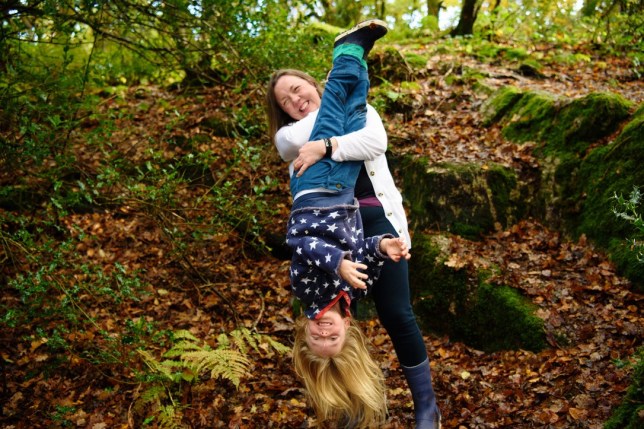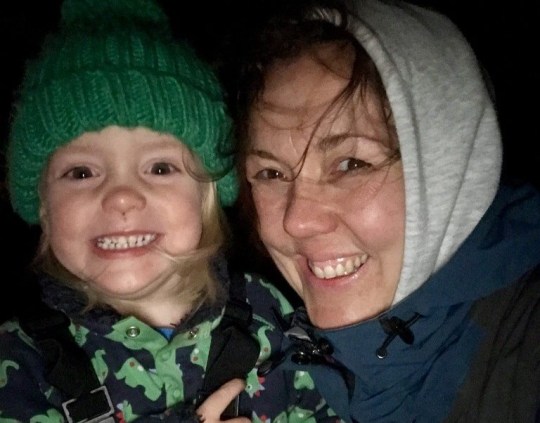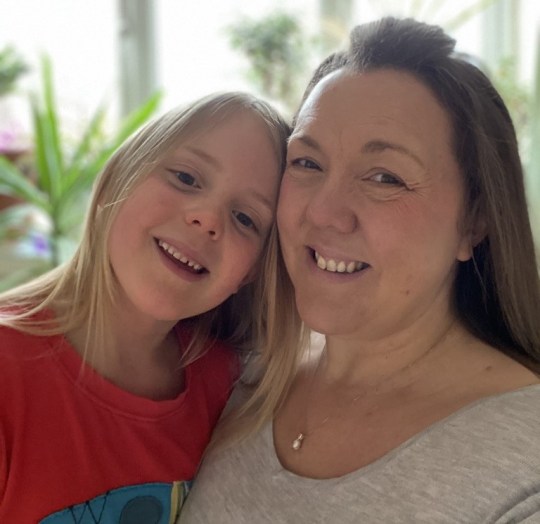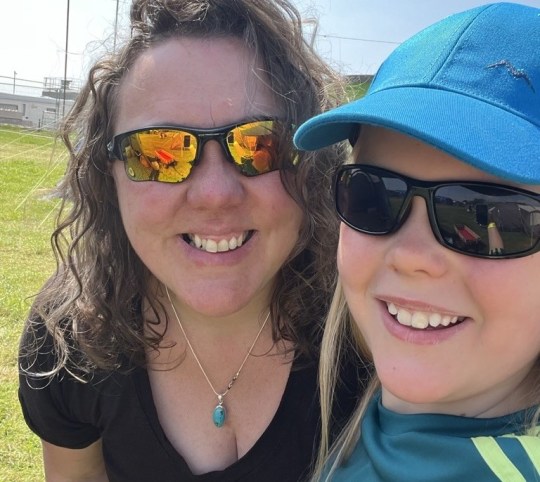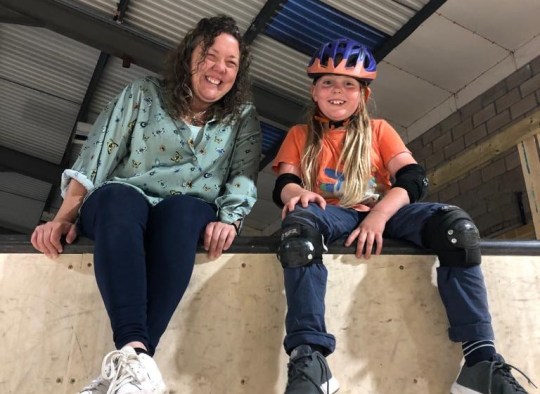Welcome back to How I Parent, where each week we take a look at how the nation is raising their kids.
This week parent mentor Rachel Brydon, 44, from Cardiff explains why she never forces her son, Freddie, nine, to apologise, or even say please or thank you.
The mum-of-one knew she always wanted to be a mum, but says she was determined to be a ‘cycle breaker’ and use a less adversarial style of parenting than she’d witnessed from her parents, or from other parents around her.
She says: ‘From the very start I’ve always wanted to be really conscious in my parenting decisions. I was a lone parent from very early on and, being older, with more life experience, I could be more reflective about how and why people do things.’
Part of her parenting style involves setting an example to show Freddie how he should behave.
‘For example, if Freddie as a toddler pushed over another child at the playground, I could sort out the situation much more quickly while, at the same time, modelling the behaviour I wanted Freddie to emulate,’ says Rachel.
‘I’d step in and say to the other child: “Oh I’m so sorry my darling, did you get pushed over? That must have made you feel very sad. Let me help you up”.
‘Freddie would watch my example and learn acceptable behaviour in that situation – instead of being forced into giving an insincere apology.
‘I believe children don’t develop the capacity to feel empathy until around the age of seven, so Freddie needed to actually see what I meant.
‘Freddie doesn’t give false apologies, he also doesn’t need apologies to move on from issues, and understands the difference between a real and a fake apology.
‘Making a child feel shame is never a useful emotion and is counter-intuitive to what parents want to achieve.’
Similarly, Rachel also believes her son shouldn’t be made to say ‘please’ or ‘thank you’ either.
She says, ‘When Freddie was small, we were visiting a friend when he asked for more food.
‘My friend cut a tiny piece of bread for him, but wouldn’t give it to him unless he’d said please. It felt so wrong to be withholding food from a child, that I vowed not to behave like that.
‘In my role as a parent, there are lots of things I need to provide for him and food is one of them – I’m not going to make him beg for it.’
Rachel says there are ways for her son to say thank you, without actually saying it.
‘If I give my nieces a present and their faces light up and they are full of excitement over it, that’s a better “thank you” than any bland platitude. I don’t know why we get so hung up on the words.’
Despite not forcing her son to say certain words, Rachel places value on Freddie being able to vocalise how he is feeling. From a young age the pair have discussed emotions openly.
As a result, Rachel says, Freddie is able to articulate his feelings, instead of becoming frustrated or finding his emotions difficult to understand and deal with.
She says, ‘Freddie performs a lot on stage. He knows that the fizzy feeling he gets in his tummy before going on stage is good, because he loves to act. But he also knows that he gets a similar fizzy feeling if he is anxious at school, which is interesting because excitement and nerves can present in a very similar way in the human body.’
For Rachel, parenting is teamwork – between her and her child.
‘There’s no hierarchy in our relationship,’ she says. ‘I do the things I need to do as a parent, like keeping Freddie healthy and safe, but I don’t think I’m better than him. Instead we go through life together.
‘Understanding emotions also means he can call me out if I’m being unreasonable because I’m tired, hungry or premenstural. And he’s always right!
‘Freddie and I have a very close relationship and if I’m feeling overwhelmed, I’ll explain to him that I need some time out. Now he’s started learning from me, he’ll tell me if he needs space or he’ll practice deep breathing techniques.
‘I’ve tried to teach him that it’s okay to mess up, the important thing is to make things right again and that I will love him regardless.’
Whilst Rachel stands by her parenting methods, she says other parents make it clear that they don’t agree with her ideas.
She says, ‘At the park, a parent might say quite passive-aggressively to their child that they are sorry Freddie couldn’t say thank you to them. I don’t see any need for it, in fact it’s ruder than any behaviour Freddie has shown.
‘But I also often get compliments on Freddie’s behaviour. People always say how well behaved and well mannered he is, so I must be doing something right.
‘My wish for Freddie is that he grows into an adult who is really happy, really interesting and understands his emotions and I hope that my parenting choices now will contribute to this for him. I want him to have the tools necessary to grow into a well-rounded adult, not to have the confidence knocked out of him as a child.
‘Parents don’t need to be perfect, they just need to be human.’
Do you have a story to share?
Get in touch by emailing MetroLifestyleTeam@Metro.co.uk.
MORE : My son asked me why we can’t go on holiday like other families. It broke my heart
MORE : I’ve got a bad case of gymtimidation. How do I get past my fear?
MORE : Mum diagnosed with cancer and underwent chemo — only to discover she wasn’t sick
Sign up to our guide to what’s on in London, trusted reviews, brilliant offers and competitions. London’s best bits in your inbox
This site is protected by reCAPTCHA and the Google Privacy Policy and Terms of Service apply.

